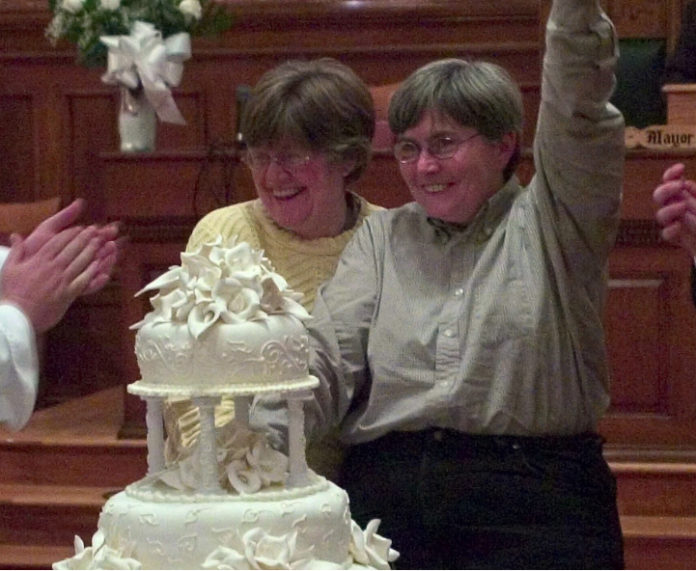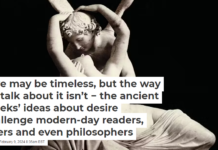

By Renae Barker, University of Western Australia
Cakes are central to many Western celebrations – in particular, birthdays and weddings. But should businesses have the right to refuse to make a cake for a celebration that contradicts their religious beliefs? In several highly publicised incidents around the world, Christians have refused to provide services, including cakes, to homosexual people.
In perhaps the most famous instance, dubbed “cakegate”, a Northern Ireland bakery refused to make and ice a cake depicting Bert and Ernie from Sesame Street with the words “Support Gay Marriage”. In response, the Equal Opportunity Commission of Northern Ireland brought a civil action against the bakery. The case is expected to be heard this month.
This is far from an isolated incident. In the United Kingdom, a guest house refused to allow a gay couple to share a room on religious grounds. As committed Christians, the operators only allowed married couples to share a room. The guesthouse’s website carried the following statement:
Please note that out of a deep regard for marriage we prefer to let double accommodation to heterosexual married couples only.
Following the refusal to rent a room to a gay couple, the dispute found its way to the UK Supreme Court. The proprietors were ordered to pay damages.
In the American state of Oregon, a case is underway after a bakery declined to provide a cake for a lesbian wedding. In Australia, Christian Youth Camps refused to take a booking from a group wanting to run a suicide-prevention camp for same-sex-attracted young people. The case ended when Christian Youth Camps lost their appeal against a finding that they had breached equal opportunity laws.
The quest to find a balance
Ultimately, this issue involves the balancing of two human rights. On the one hand, homosexual people are entitled to be free from discrimination. The International Convention on Civil and Political Rights provides that all people, including people who identify as homosexual, are entitled to non-discrimination and equality before the law.
On the other hand, Christians and other religious people are entitled to the free exercise of their religion. The International Convention on Civil and Political Rights provides that:
Everyone shall have the right to freedom of thought, conscience and religion.
For many people, religious beliefs are part of their everyday life. This includes operating a business and providing commercial services to others.
How societies and the law balance these competing rights is a live issue. The Democratic Unionist Part (DUP), the main governing party in Northern Ireland, has put forward a consultation paper proposing an amendment to Northern Ireland’s Equality Act (Sexual Orientation) Regulations. If successful, this would permit commercial service providers to refuse to provide goods, facilities and services:
… so as to avoid endorsing, promoting or facilitating behaviour or beliefs which conflict with [their] strongly held religious convictions.
Similar laws are also being considered in Michigan in the US.
Law should aim for a fair compromise
If passed, these laws would reverse the current trend in cases of same-sex rights versus religious freedom. The question for society and lawmakers is whether this is a fair compromise.
This particular Northern Irish proposal is drafted too widely. It covers too many services, many of which are essential to the well-being of homosexual people and their families.
Of particular concern is the inclusion of “facilitating” as a ground for refusing services. Facilitating means to make something easier. It could therefore cover any service that in effect permitted same-sex individuals, couples and families to live normal productive and happy lives. That is, everything from wedding cakes and flowers for same-sex marriages to accommodation in hotels and guest houses to family law and adoption services.

AAP/James Morgan
Laws already exist that permit some discrimination against homosexual people on the grounds of religious belief. For example, in the UK, religious organisations are permitted to discriminate on the grounds of sexual orientation in certain circumstances. Similar laws exist in Australia.
While narrower than the laws proposed in Northern Ireland and Michigan, these laws have been criticised for allowing religious organisations to discriminate in areas not directly connected to religious beliefs.
However, the current exemptions to anti-discrimination laws do not cover commercial organisations or individuals. This has caused difficulties for religious people with strongly held views about homosexuality, as highlighted by the examples given above.
So, where should the balance be? We cannot simply abandon the human right of religious freedom in pursuit of equality for homosexual people. Nor should we allow homosexual people to be subjected to the humiliation of being refused services on the basis of their sexual orientation.
Ultimately, the answer will be a matter of balance and may need to be worked out on a case-by-case basis. What society and lawmakers cannot do is stick their heads in the sand and ignore this emerging battle between competing rights. If they do, the end result will be a winner and a loser.
Instead we must confront this issue, debate it and strive for an outcome that preserves the fundamental human right to freedom of religion, including the practice of that religion in everyday life, alongside the rights of all people, including homosexuals, to be free from discrimination. While I may not have an answer just yet, the DUP’s proposal isn’t it.
![]()
This article was originally published on The Conversation.
Read the original article.



















